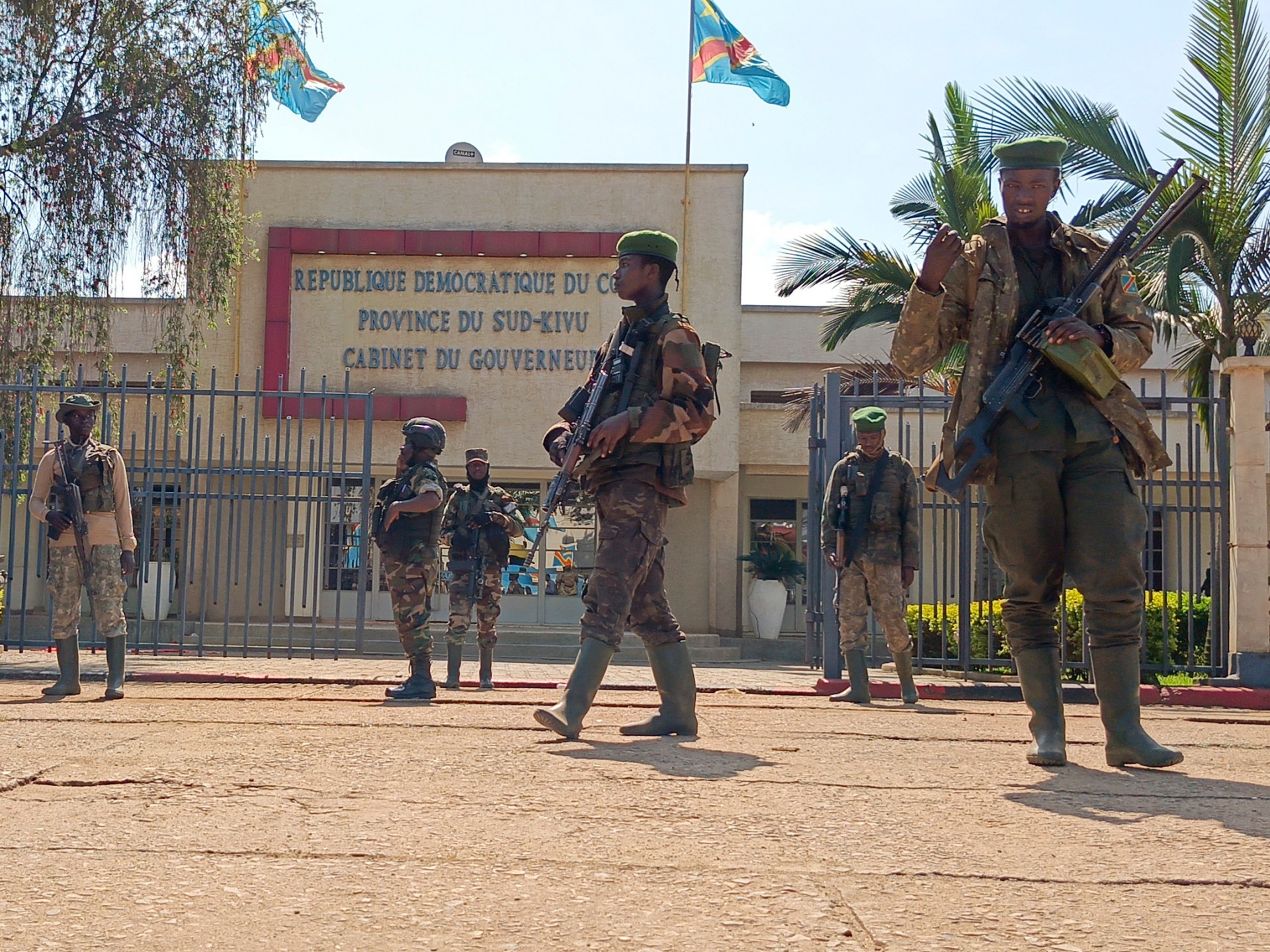Africa
UN human rights chief accuses M23 rebels of ‘summary executions’ in DRC

Grave Accusations of Human Rights Abuses in the Democratic Republic of Congo
The United Nations High Commissioner for Human Rights, Volker Turk, has issued a stark warning about the deteriorating humanitarian situation in the Democratic Republic of Congo (DRC). In a statement released on Tuesday, Turk accused Rwanda-backed rebels, known as the M23, of committing horrific atrocities in the eastern part of the country. Specifically, Turk’s office has confirmed cases of children being summarily executed and forcibly recruited as soldiers after the M23 seized control of the major city of Bukavu last week. The rebels have also been accused of attacking hospitals and warehouses storing humanitarian aid, exacerbating the already dire situation for civilians.
Turk emphasized that the targeting of children is particularly alarming, with reports indicating that minors were found in possession of weapons, suggesting their forced recruitment into the conflict. While the statement did not provide specific details of the incidents, UN agencies have previously documented that both government forces and rebel groups in the DRC have engaged in the recruitment of child soldiers. This latest escalation underscores the brutal nature of the conflict, which has been ongoing for decades and has left millions displaced and countless lives lost.
The Humanitarian Toll of the Conflict
The M23 rebels, who captured Bukavu, a city of 1.3 million people, have been responsible for significant violence and displacement. Just weeks earlier, the group seized Goma, another major city located 63 miles to the north. The fighting in Goma alone resulted in at least 3,000 reported deaths and thousands more displaced. The M23 is one of over 100 armed groups operating in eastern DRC, all vying for control of the region’s vast mineral wealth, which is critical to the production of much of the world’s technology.
The humanitarian crisis in the region has reached catastrophic proportions, with more than 6 million people displaced due to the ongoing violence. The targeting of hospitals and aid warehouses by the M23 has further strained the ability of humanitarian organizations to provide assistance to those in need. Arbitrary arrests, detentions, and mistreatment of civilians have also been reported, with particular concerns raised about the forced return of young men fleeing violence in neighboring countries. These actions have only deepened the suffering of a population already enduring unimaginable hardship.
The Rise of the M23 and Its Political Ambitions
The M23 has emerged as the most prominent armed group in eastern DRC, with analysts suggesting that the rebels are now seeking political power rather than merely territorial control. Unlike their brief seizure of Goma in 2012, when they withdrew under international pressure, the group appears more determined this time to consolidate its gains. Backed by an estimated 4,000 troops from neighboring Rwanda, the M23 has been able to expand its influence rapidly, capturing key cities and strategic locations.
The M23 claims to be fighting to protect Tutsis and Congolese of Rwandan origin from discrimination, framing its campaign as an effort to transform the DRC from a “failed state” into a modern one. However, critics argue that these claims are a pretext for Rwanda’s involvement in the region. Rwanda has long accused the DRC of supporting Hutu fighters linked to the 1994 genocide, in which hundreds of thousands of Tutsis and moderate Hutus were killed. While the M23 presents itself as a protector of marginalized groups, its actions, including the recruitment of child soldiers and the targeting of civilians, have drawn widespread condemnation.
Rwanda’s Role in the Conflict
Rwanda’s involvement in the DRC has been a contentious issue for decades, with the country accusing the DRC of harboring groups linked to the 1994 genocide. Rwanda has denied direct involvement in the M23’s operations, but UN experts have reported that Rwandan troops are actively supporting the rebels. This backing has enabled the M23 to withstand military pressure from the DRC and its allies, further entrenching the conflict.
The broader regional dynamics complicate efforts to resolve the crisis. The DRC has accused Rwanda of using the M23 as a proxy to exert control over the region’s lucrative mineral resources, while Rwanda maintains that its actions are necessary to protect its national security and the rights of its ethnic kin in the DRC. This cycle of accusation and retaliation has only deepened the conflict, leaving civilians caught in the crossfire.
The Need for International Action
The UN Human Rights Council has taken steps to address the atrocities in the DRC, launching a commission earlier this month to investigate crimes committed by both government forces and rebel groups since the beginning of the year. These crimes include summary executions, rapes, and the recruitment of child soldiers. The commission’s work is critical to holding perpetrators accountable and ensuring justice for victims.
However, the scale of the crisis demands more urgent and comprehensive international action. The targeting of civilians, including children, hospitals, and aid workers, is a clear violation of international humanitarian law and must be met with strong condemnation and tangible consequences. The international community must also address the root causes of the conflict, including the competition for resources and the unresolved ethnic tensions in the region.
As the situation in the DRC continues to deteriorate, the stakes could not be higher. The international community must act swiftly to prevent further loss of life, protect vulnerable populations, and work toward a lasting resolution to the conflict. Without decisive action, the people of the DRC will continue to endure unimaginable suffering, and the region will remain a hotspot of instability for years to come.











